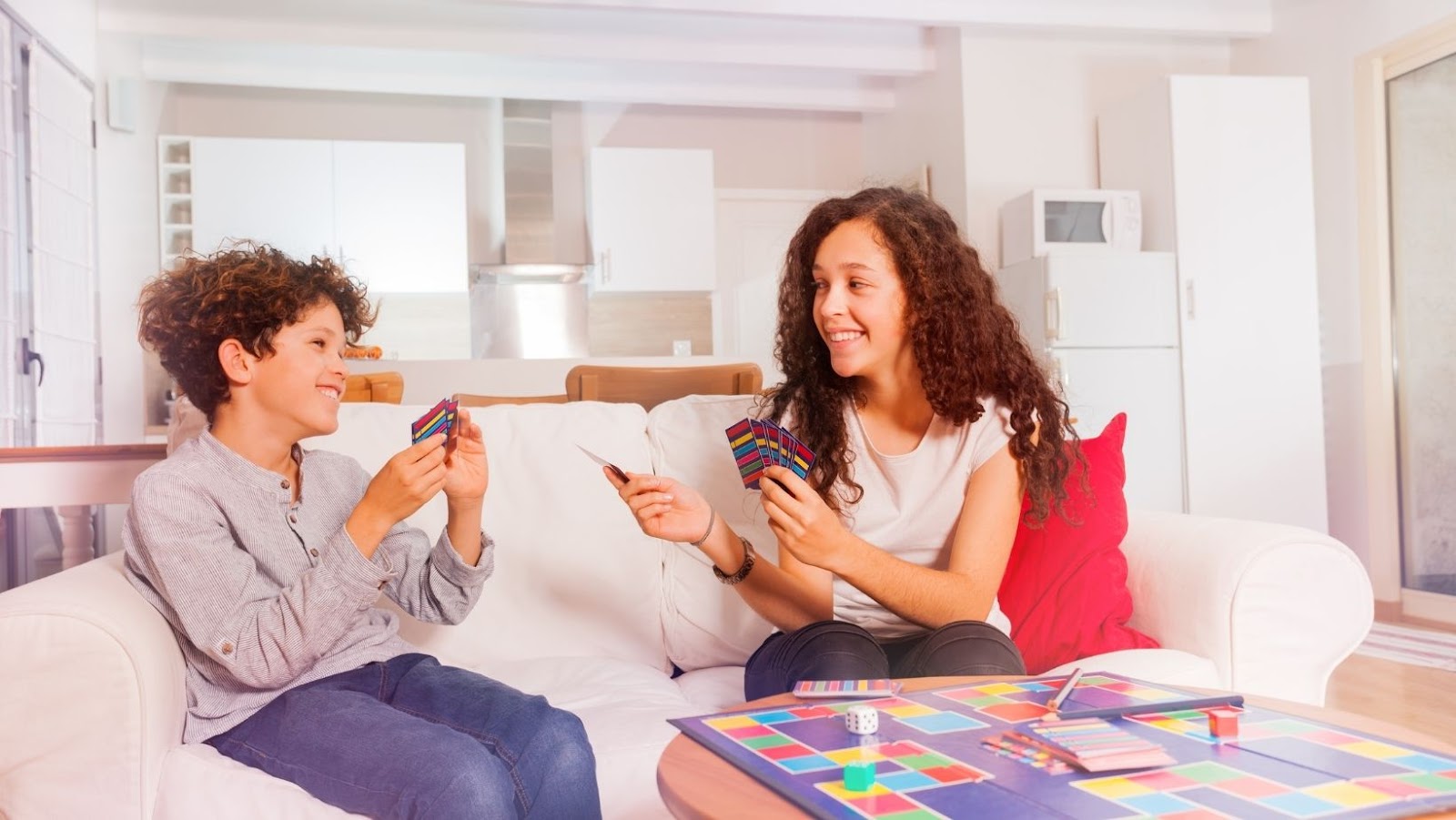In a world where kids are exposed to unprecedented levels of digital media, parents find it more and more challenging to occupy young ones with anything else than screen time. Luckily, board games are a classic way to get your kids to play and learn at the same time.
Board games also allow parents to spend time with their kids or allow them to play independently and learn on their own. There are tons of other benefits board games offer kids but here is a quick look at the top 5.
Strategic Thinking
Learning to think strategically is an invaluable skill but it is not something that can be taught as easily as reading or writing. These strategic approaches are abstract and kids learn them through play, puzzles, riddles, and yes, board games.
There are loads of strategy board games that require kids to think a few steps ahead and think on their feet as other players possibly foil their plans. Even a game as basic as Connect 4 will show kids how to think of a game plan and follow through on their decided course of action.
This way of thinking help kids to become independent learners and problem-solvers, encouraging independent learning and advancing their skills in math and science.

The Value of Teamwork
People often associate board games with winning or losing and while that in itself is a valuable lesson to be taught, teamwork also comes into play with board games. Unlike games like Monopoly or Catan where it is every man to himself, you will also find cooperative games where everyone works as a team against the game.
Feed the Woozle is a game that will have kids and adults alike hysterically laughing as everyone tries to feed the Hungry Woozle some snacks before they run out. Everyone works together to get the snacks to the Woozle and kids quickly see how it is more important to cheer each other on than hope for an ill-timed trip up.
Even older kids can play a game like Pandemic along with the whole family. Everyone has a role to play and must work together to stop the viral outbreaks around the world.
Helps with Attention Span and Concentration
In a time where kids are bombarded by fast and snappy 30-second video clips or sped-up DIY compilations, it seems near impossible to keep their attention for more than a few moments at a time.
But board games will help kids focus on the task at hand or face losing the game if they get distracted. This is a hard lesson to learn the first few rounds but in no time, you will have kids begging to play lengthy games like Scrabble or Ticket to Ride.
There are even short and snappy games like Spot It that go by quickly, but kids need to concentrate to spot matching cards faster than everyone else. The hand-eye coordination involved with this one is another little bonus.
Develops Creativity
Board games allow kids to escape to all manner of fantasy worlds, exploring castles, building new realms, and designing their own adventures. These kinds of games leave everything to the imagination and kids can get creative like never before.
Dixit features a deck of beautifully illustrated cards that kids need to describe with simple words or phrases. They must think out of the box to avoid being too obvious as this will cost them the game.
Once Upon a Time has long been one of the best storytelling games around and kids love making up their own wild fantasy tales. Rory’s Storytelling Cubes is another fun game that can even travel around with families on the move. Soon, your kids will be able to join in on a lengthy game of Dungeons & Dragons, every geeky parent’s dream!

Develops Literacy
There are various aspects of literacy that are covered by board games apart from the obvious aspects like reading and counting. A game like Monopoly is an invaluable asset to parents who want to help kids learn financial literacy and Sum Swamp is a fun game that features basic arithmetic.
Games like Qwirkle, Sequence, and UNO also help kids with colors, numbers, and shape identification. The best part about it is that kids don’t even realize they are learning! All these games provide tons of fun and distraction while developing basic literacy skills across the board.























